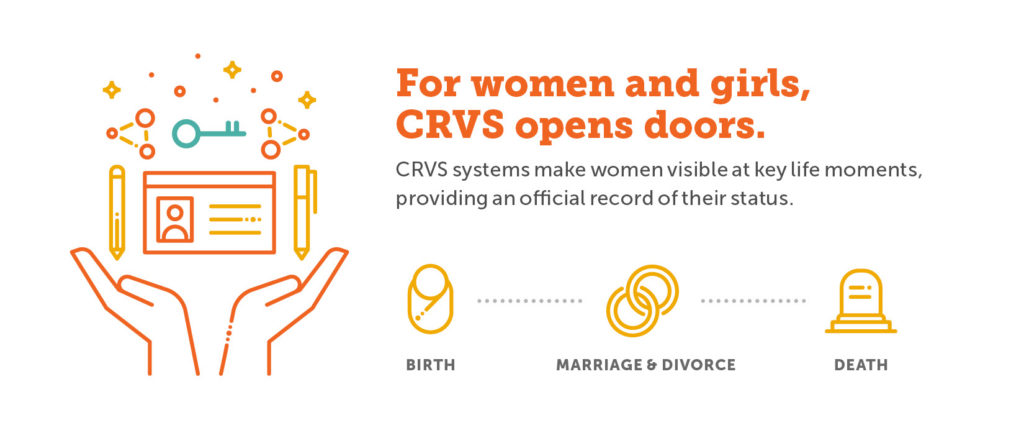Civil Registration and Vital Statistics and Gender Data
Civil registration and vital statistics (CRVS) systems help protect fundamental rights and freedoms. They can also provide real-time, disaggregated, individual-level data which countries can use to design and implement policies that address the unique needs of women and girls. That’s why supporting CRVS systems strengthening is part of our work.

Countries collect basic data on life’s key events—birth, death, marriage, divorce—through CRVS systems. When these systems work well, they are important sources of information on a country’s demographics and ensure that citizens get basic documentation such as birth certificates. In many countries, these registration documents are also needed to register for identification cards, which can be used to access public and private services. However, because women and girls are more likely to be excluded, lack of access to CRVS can compound their already unequal positions, while well-functioning CRVS systems can have a disproportionately positive impact on the lives of women and girls.
Despite the importance of CRVS systems for women and children, currently, there are gaps in these systems. Many countries lack capacity to record vital events, and gendered barriers and inequalities in CRVS systems persist and are often overlooked.
CRVS is inherently country-led, but international and regional guidance can encourage momentum and system improvements. From 2015 to 2016, Data2X conducted research on CRVS and gender issues for regional partners (the UN Economic Commission for Africa and the UN Economic and Social Commission for Asia and the Pacific) in order to help incorporate a gender dimension into global and regional CRVS improvement efforts. This included a focus on advocacy to highlight the importance of including marriage and divorce registration as critical components of CRVS strengthening efforts.
Currently, we are working to create an advocacy platform to improve gender-sensitive CRVS systems in partnership with the Centre of Excellence for CRVS Systems housed at the International Development Research Centre in Ottawa, Canada.
Related Content
-
Related
InfographicUnlocking Equality
Go to infographic -
Related
Knowledge BriefLeaving No One Behind: CRVS, Gender, and the SDGs
Go to knowledge brief -
Related
Policy BriefCRVS and Gender
Go to policy brief -
Related
BlogDiving Deep into Civil Registration and Vital Statistics: A Case for Action and Empowerment
Go to blog
